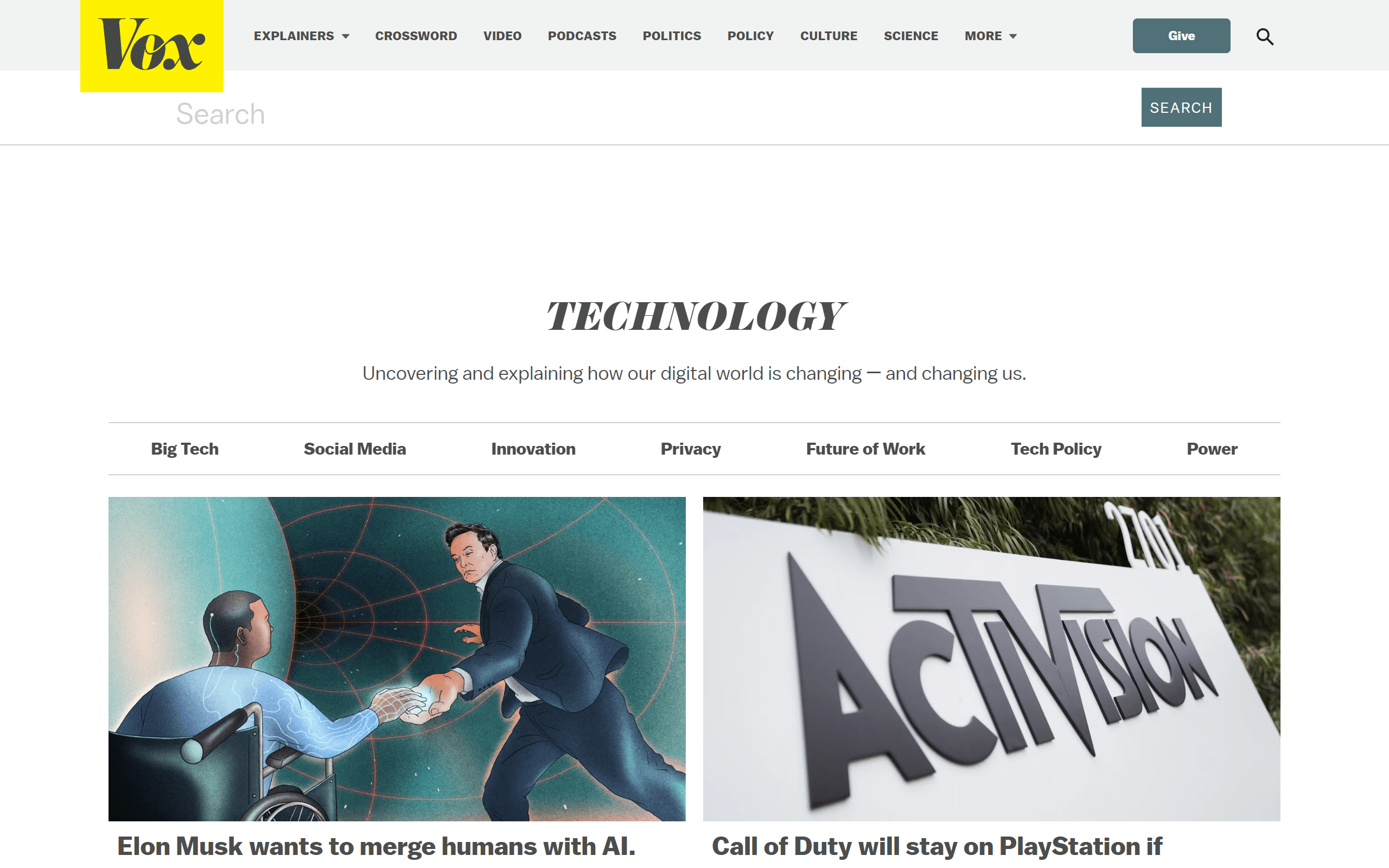Check Out Thought-Provoking Articles on the Best tech blog for Tech Lovers
Check Out Thought-Provoking Articles on the Best tech blog for Tech Lovers
Blog Article
How Blockchain Technology Is Revolutionizing Data Protection
Blockchain technology is basically altering the landscape of information protection by introducing a decentralized structure that guarantees improved transparency and resilience. Unlike standard systems, which rely upon centralized data databases, blockchain disperses information across a network, decreasing vulnerabilities and solitary factors of failure. The usage of advanced cryptographic techniques guarantees that data stays tamper-proof, cultivating trust among users and stakeholders. As industries swiftly adjust to this modern technology, questions occur concerning its broader effect and potential challenges. What effects does this shift hold for future information protection strategies and regulatory frameworks? The responses might surprise you (Best tech blog).
The Fundamentals of Blockchain
Blockchain technology, an advanced concept in digital data administration, essentially changes how information is kept and safeguarded. At its core, a blockchain is a dispersed ledger that records transactions throughout a network of computer systems, guaranteeing openness and immutability. The modern technology runs on a chain of blocks, each containing a checklist of purchases. Once a block is filled, it is time-stamped and connected to the previous block, developing a sequential chain.
Secret to understanding blockchain is the hashing process, which secures transaction data into an unique alphanumeric code. This cryptographic function makes sure that any change in the purchase information causes an entirely various hash, consequently protecting against tampering. The consensus device, one more important part, verifies and validates new purchases via a network of nodes, consequently getting rid of the requirement for a central authority.
Additionally, blockchain's append-only structure ensures that data, when included, can not be erased or changed. This characteristic guarantees a permanent and proven document of deals, cultivating count on among participants. As a result, blockchain supplies a robust structure for information stability, using industries a trusted technique for tracking and handling electronic info in a safe, transparent way.
Decentralization and Protection
Decentralization, a core principle of blockchain modern technology, dramatically boosts information safety and security by dispersing control throughout a network rather than depending on a particular, centralized entity. By spreading information throughout various nodes, blockchain ensures that even if one node is endangered, the entire network continues to be safe.

In addition, decentralization equips users with higher control over their information. Each participant in the network has accessibility to the entire blockchain, enabling them to confirm and examine purchases individually. This openness promotes trust fund among customers, as they do not need to count on a central authority to guarantee data honesty. In general, decentralization is critical in boosting data security in blockchain networks.

Cryptographic Techniques
At the heart of blockchain modern technology, cryptographic strategies play an essential role in guarding data, ensuring both discretion and honesty. These techniques are foundational to the blockchain's capacity to safely tape deals in a decentralized way. Cryptography in blockchain uses a combination of symmetric and asymmetric algorithms to secure information, making it available only to licensed celebrations - Best tech blog. Public and personal essential sets are central to this procedure, permitting protected authentication and identification verification without revealing delicate information.
Hash functions are another important component, changing input information into a fixed-size string of characters, efficiently creating an one-of-a-kind digital fingerprint for each and every block. This ensures that any type of attempt to change the information will certainly result in a totally different hash, therefore maintaining the immutability of the blockchain. Electronic signatures verify the authenticity and integrity of purchases, giving a layer of non-repudiation.
The decentralized nature of blockchain, incorporated with robust cryptographic methods, eliminates the requirement for middlemans, decreasing potential vulnerabilities. As blockchain modern technology advances, innovations in cryptography such as zero-knowledge proofs and homomorphic security remain to enhance safety procedures, additionally fortifying information protection in this cutting edge electronic journal system.
Usage Instances Throughout Industries

In the medical care sector, blockchain ensures the secure storage and sharing of client documents, advertising interoperability while protecting sensitive information from unauthorized access. This modern technology empowers clients with control over their case history and helps with smooth coordination among healthcare article source service providers.
Supply chain monitoring benefits substantially from blockchain's unalterable journal, which ensures traceability and authenticity of products from origin to customer. By improving openness, blockchain helps minimize issues such as counterfeiting and dishonest sourcing.
Additionally, blockchain's decentralized nature is improving the energy sector by making it possible for peer-to-peer energy trading, where customers can deal excess sustainable energy straight. This fosters an extra reliable and lasting energy ecosystem.
In the world of intellectual residential property, blockchain supplies a tamper-proof system for designers to register and safeguard their works, guaranteeing rightful attribution and fair settlement. These diverse use instances underscore blockchain's role as a pivotal force in redefining data security across sectors.
Future of Data Defense
As we want to the future of information defense, blockchain my explanation modern technology is poised to play a crucial function in protecting digital info. With its decentralized and unalterable attributes, blockchain uses a durable structure for safeguarding delicate data versus unauthorized accessibility and cyber risks. This technology makes certain that as soon as data is tape-recorded, it is almost impossible to change without discovery, hence offering a substantial advantage over standard information storage techniques.
The combination of blockchain with other sophisticated modern technologies, such as fabricated knowledge and the Net of Points (IoT), is expected to enhance information defense strategies even more. By leveraging smart contracts, companies can automate and impose safety methods, reducing human mistake and increasing performance. In addition, blockchain's capability to offer deducible and transparent purchases will boost depend on and liability in data management practices.
As governing landscapes progress, blockchain's compliance-friendly nature will certainly come to be significantly appropriate. It can assist companies satisfy rigid information protection policies, such as the General Data Defense Law (GDPR) and the California Customer Privacy Act (CCPA), by offering proven records of information processing activities. Eventually, blockchain's special qualities position it as a transformative device in the ongoing quest to secure the digital world against ever-evolving cyber threats.
Verdict
Blockchain modern technology stands for a standard shift in information safety by leveraging decentralization and cryptographic techniques to improve openness, trust, and data stability. As cyber threats advance, blockchain emerges as a crucial device for durable data security across different industries.
Blockchain modern technology is basically modifying the landscape of data safety and security by presenting a decentralized structure that guarantees enhanced transparency and resilience. Unlike traditional systems, which depend on central information repositories, blockchain disperses data across a network, reducing susceptabilities and single points of failing.Decentralization, a core concept of blockchain technology, considerably improves data security by distributing control across a network instead than relying on a singular, centralized entity.At the heart of blockchain modern technology, cryptographic strategies play an essential duty in guarding data, ensuring both privacy Check This Out and honesty.Blockchain innovation stands for a standard change in information protection by leveraging decentralization and cryptographic strategies to improve transparency, trust fund, and data honesty.
Report this page